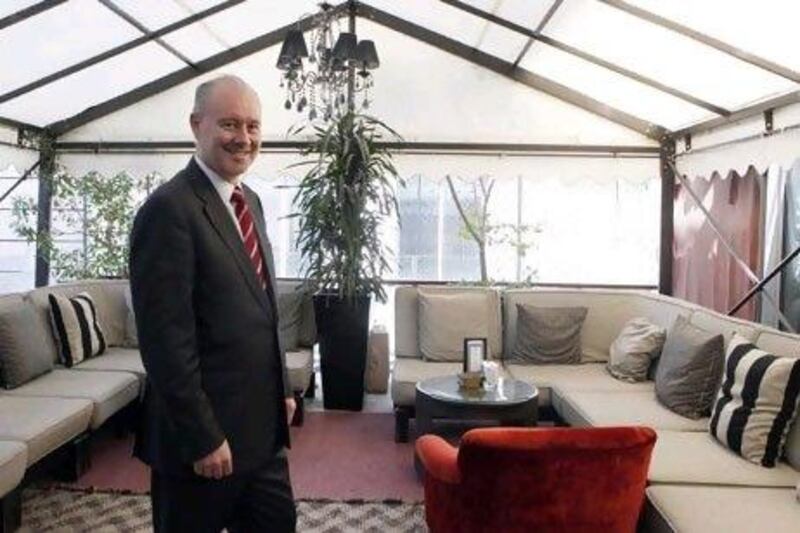Russell Matcham is the chief executive of the Capital Club Dubai, a private venue designed to meet the demands of premier business leaders in the emirate. Originally from South Africa, Mr Matcham helped found the institution at the Dubai International Financial Centre in 2008.
How would you describe the club's membership?
There are currently 23 people on the board of governors. Other members are by invitation only. When we established the board, we focused on representing the whole of Dubai - all cultural groups and big industries. Now, of course, the club grows in the same way. Members tend to invite people from their industry. The idea is it's a synthesis club - it brings people together.
How much does it cost to join?
It costs Dh55,000 for an individual membership and Dh57,500 for a corporate member. Meanwhile, it's about Dh1,000 each month to remain a member. After a holding period of three years, members have the right to trade this membership through the club to another prospective member. A transfer fee of 10 per cent is retained by the club. Although we do not sell the membership as an investment, it often happens that fees increase over time and, therefore, members can make a profit on trading a membership. For example, if a member joined three years ago, they would have paid Dh40,000. The current price is about Dh55,000, so if they transferred the membership they would have received Dh49,000 after the fee, which is a 24 per cent profit.
How much did it cost to found the Capital Club?
The full development of this club was about US$20 million (Dh73.4m). It's expensive, but it's good in the sense that it's a big hurdle for any competitors to come into the market. And, of course, we have a strong board. We knew if we did it properly, it would be successful. We developed an institution.
What role does the club play in the business community?
The idea of the Capital Club is to bring people together and give them a private platform. It's more about getting perspectives and knowing what is really going on, which they don't express if they are in a public forum. Here, there is also a bent towards entrepreneurship. Everyone sees that as a way forward for the region to look after all the young, aspirational people in the Middle East who would have traditionally received employment from the government or one of the big families associated with government. All the guys we speak to say we need to establish more small-to-medium-sized businesses. The club is fostering this concept.
Are you a saver or a spender?
I was a saver until the financial crisis. This has convinced me to become a spender. I love travelling, so I knew I would never develop a portfolio of property in one place. I always trusted my savings to mutual funds and similar vehicles. But when the crisis came along, it became apparent that all these investments, with compound interest and share-growth returns, were less than impressive. I have now decided I will just spend what I earn. And what I spend it on is travel. I go away to Thailand and South Africa, for example. Soon I will be trekking to Patagonia, the silver mines in Bolivia and then watching the Rugby World Cup in New Zealand.
What has been your biggest financial lesson?
In the past, I believed what I was told in terms of investing in bonds and shares. In hindsight, if I look at these portfolios over time, my broker made more money than I did. We're actually going to have a big debate in the club soon about the value of financial advice. I am tending to say I'm going to manage my own money for a while. When I lose, it's my issue and I can't blame anyone else.
What has been your biggest financial success?
Saving at a young age was important. I always put money away. That money for the most part is still there. I have also bought and sold a few properties and my timing, particularly in Dubai, wasn't bad. Investment in the Capital Club has been excellent, although not measured on financial terms. It's still a baby and we're growing up. Financial returns will come later. But from an experience point of view, the ability to meet so many people has been great. The value of my network is tremendous.
What is your overall philosophy regarding money?
I started out with a conservative philosophy - and being in Dubai has changed that. You have to spend money to make money. I think you have to be willing to take risks. But at the same time, be very careful. At the end of the day, it's the attention to detail that makes you successful.






